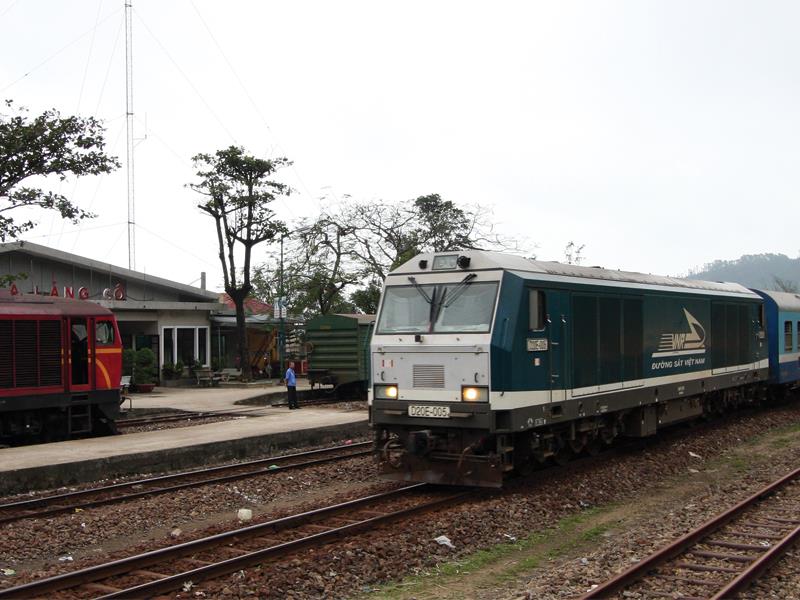New draft law on track to split up railway monopoly
 |
Nguyen Ngoc Dong, Deputy Minister of Transport, told VIR, “The separation of infrastructure management and transportation business is regulated in the 2005 Railway Law, and now it is mentioned in a draft law to revise the 2005 Railway Law with specific contents, aiming to make the industry more attractive to domestic and foreign private investors.
“As the fact proved that private firms run transportation businesses more effectively, the Ministry of Transport (MoT) consulted ministries, agencies, and the National Assembly’s Science, Technology, and Environment Committee about the issue before including it in the draft law,” he added.
Dong made the statement after Vietnam Railways (VNR), which has been considered a monopolist in the industry for years, raised its objections over some contents of the draft law, including this separation.
In a document sent to the National Assembly’s Science, Technology, and Environment Committee recently, VNR specified at least six problems with the draft law – with the separation mandate of greatest concern. This separation will prove impractical and unreasonable, VNR opined, and may cause instability in the industry.
According to VNR chairman Tran Ngoc Thanh, this separation has not been assessed in the summary of the 10-year implementation of the 2005 Railway Law. Without a clear assessment, there is not enough evidence to prove it reasonable in Vietnam, where the market is small, of low capacity, and outfitted with regressive technology.
“Specifically, Clause 2, Article 54 of the draft law states that railway infrastructure developers are not allowed to directly run a business or invest in railway transportation businesses. This regulation, if adopted, will change our operations comprehensively, as we are currently working as both infrastructure developer and transportation business,” Thanh said.
Dong, however, said although this separation will cause radical changes in the corporation’s operations, it is in line with VNR’s restructuring plan, approved by the government in 2013. Accordingly, VNR will have to continue divesting from its transportation business units.
“VNR has for years been assigned to operate, manage, and maintain the whole railway network, including tracks, stations, transport business, and railway infrastructure assets. This has made it difficult for private investors to join. It’s time to create favourable conditions for private firms to invest in the industry,” Dong said.
While VNR objects, many ministries – including the Ministry of Justice, the Ministry of Finance (MoF), and the National Assembly’s Science, Technology, and Environment Committee – support the MoT’s view.
“The operation of railway infrastructure assets, including 3,000 kilometres of railway lines, 287 stations, 1,818 bridges, and 39 tunnels have proved ineffective. VNR’s monopoly in the industry failed to encourage it to renovate its operations,” said MoF, in a document sent to the government.
What the stars mean:
★ Poor ★ ★ Promising ★★★ Good ★★★★ Very good ★★★★★ Exceptional
Latest News
More News
- Site clearance work launched for Dung Quat refinery upgrade (February 04, 2026 | 18:06)
- Masan High-Tech Materials reports profit: a view from Nui Phao mine (February 04, 2026 | 16:13)
- Hermes joins Long Thanh cargo terminal development (February 04, 2026 | 15:59)
- SCG enhances production and distribution in Vietnam (February 04, 2026 | 08:00)
- UNIVACCO strengthens Asia expansion with Vietnam facility (February 03, 2026 | 08:00)
- Cai Mep Ha Port project wins approval with $1.95bn investment (February 02, 2026 | 16:17)
- Repositioning Vietnam in Asia’s manufacturing race (February 02, 2026 | 16:00)
- Manufacturing growth remains solid in early 2026 (February 02, 2026 | 15:28)
- Navigating venture capital trends across the continent (February 02, 2026 | 14:00)
- Motivations to achieve high growth (February 02, 2026 | 11:00)
















 Mobile Version
Mobile Version